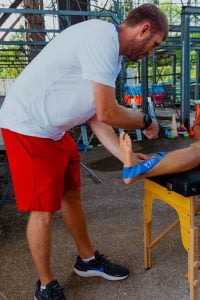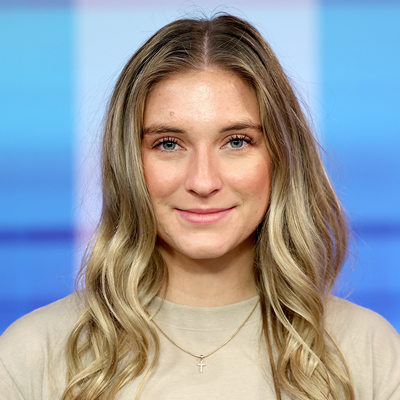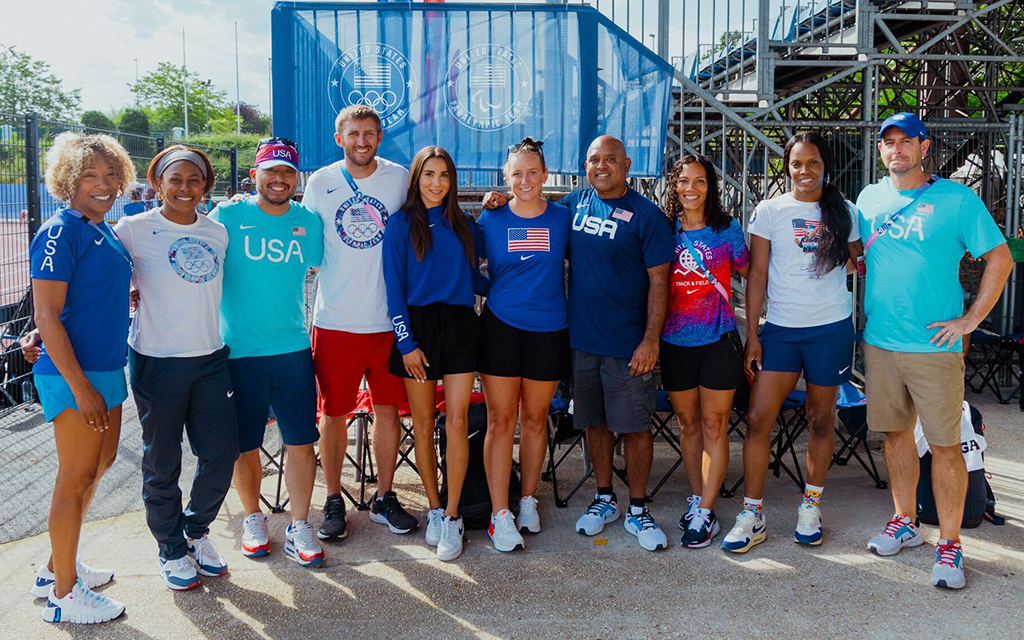PARIS – From the Summer Games to the Paralympics, a robust support system surrounds the U.S. athletes seeking gold.
That includes the Team USA medical staff, trainers and other medical professionals who ensure athletes receive comprehensive care. They address the sprained ankles, broken bones and torn muscles that challenge athletes at their lowest points.
“We’re a very collaborative system here, one team, one staff, and in that sense, it’s like each person provides their own specialty, their own strength, and we recognize that,” said Brittany Garcia, who was working in Paris with USA Track and Field and who previously served as an assistant trainer at Arizona State.
She credits the university with helping her “to enhance my baseline skills, to enhance my interpersonal skills and therefore I do bring that to this space.”
Healthcare professionals from massage therapists to psychologists made the trip to Paris for the Olympics and Paralympics, which get underway Wednesday. They can be found at Olympic Villages, training venues and competition sites.
In Paris, athletes rely on their medical team daily, whether it’s a nutritionist, psychologist or physical therapist, and receive around-the-clock care.
“It’s really important to have a good relationship and trust with athletes. … Being able to have that trust helps you to know when concerns may come, and then they know that you’re going to put them in the right way,” said Dustin Williams, co-head athletic trainer for Team USA track and field.
Williams, who previously worked as an associate athletic trainer at the University of Arizona from 2011 to 2017, called his move from collegiate sports to the national stage a dream come true.

Dustin Williams, the co-head athletic trainer for the U.S. track and field team, showcases his skills as he discusses his experience at the University of Arizona and the vital role he plays at the Paris Olympics. (Photo by Savannah Bowie/Special for Cronkite News)
“It’s just a great opportunity to be involved and to help athletes … to represent my country as well as to connect with experienced medical staff from different countries.”
And the track and field team is so big, Williams said, “you get to meet, literally, about a fifth of the U.S. Olympic team.”
Williams’ wife, Jillian, who competed in the 2008 Beijing Olympics as a shot putter, said, “The reason I even had a 12-year professional career is because (Dustin) was able to keep me healthy.”
Support doesn’t end when the competition does, and that includes addressing psychological needs that may come when the Games end.
“Athletes who continue to compete will have ongoing access to resources, and those retiring will have access for up to two years, ensuring they receive the support they need during their transition,” said Jessica Bartley, the USOPC’s senior director of psychological services.
Mental health remains a critical focus, especially following gymnast Simone Biles’ withdrawal from the women’s team final in Tokyo. In response, the IOC heightened efforts to ensure athletes received mental as well as physical care during the 2024 Paris Olympics.
“Our most utilized service is individual therapy, whether for mental health concerns or mental performance, and our sleep program has been highly effective in addressing issues that impact both,” Bartley said.
The U.S. track and field staff prioritizes building trust with their athletes.
“Being able to have that trust helps you to know when concerns may come, and then they know that you’re going to put them in the right way,” Williams said.
That support is key, Gracia said.
“Having that trust and the right medical support can be the difference between an athlete feeling overwhelmed or empowered, especially when facing challenges on and off the field.”

